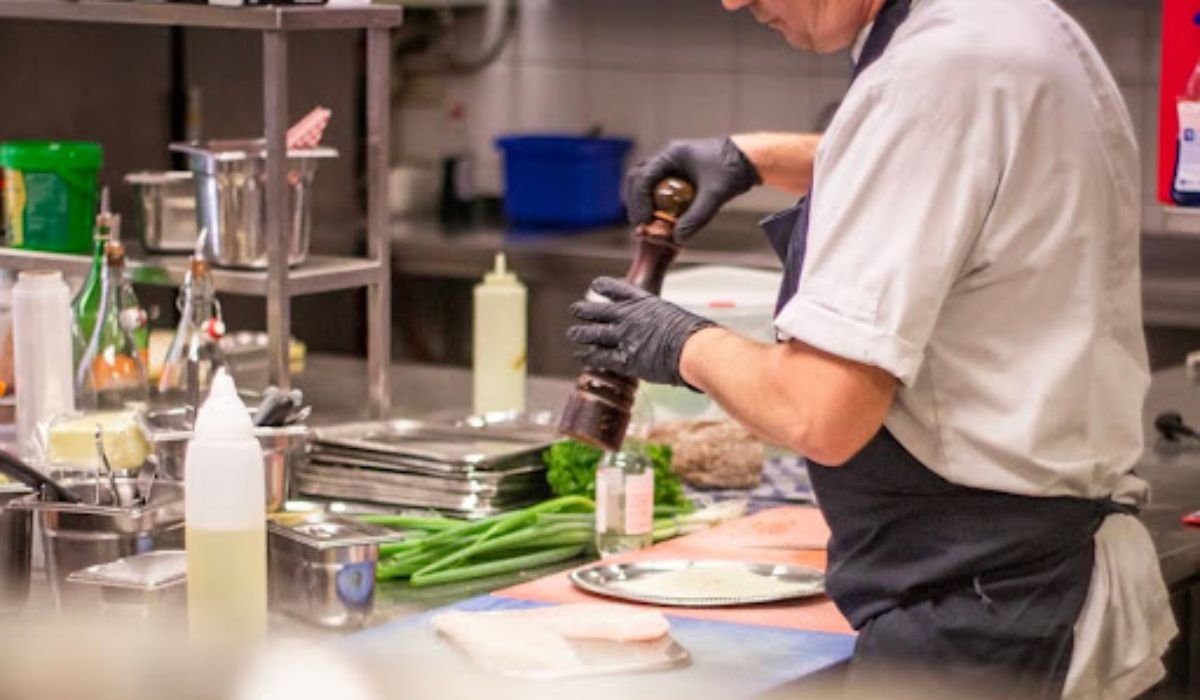For many, cooking is more than simply preparing meals—it’s an expression of culture, creativity, and passion. Transforming this passion into a viable and prosperous career requires more than just talent; it demands formal training, discipline, and education. Pursuing a culinary degree can equip budding chefs with the necessary tools and knowledge to turn their culinary dreams into reality. Keep reading to explore how a structured education in the culinary arts can be the foundation of a successful and fulfilling career in the kitchen.
The Recipe for Success: Transforming Your Passion into a Culinary Career
Pursuing a culinary degree transforms passion for cooking into a structured career path by offering more than just basic techniques. Students gain knowledge of global cuisines, ingredients, and the science of flavors, shaping a deeper understanding of food creation. Exposure to diverse culinary styles and guidance from seasoned chefs prepares them for the demands of professional kitchens, while networking often leads to mentorships or career opportunities.
Programs are designed to challenge aspiring chefs, pushing them to develop creativity, precision, and personal style in a collaborative yet competitive environment. Alongside cooking, students also study business essentials such as cost control, menu planning, and restaurant management, equipping them with a versatile skill set.
Essential Ingredients: What You’ll Learn in a Culinary Degree Program
A culinary education provides a diverse curriculum that blends foundational skills, technical training, and creative development. Students learn essential techniques such as knife handling, food safety, plating, and menu design, while also gaining insight into food science and nutrition to meet the needs of health-conscious diners.
Training includes exposure to dietary restrictions and alternatives, ensuring inclusive menu planning. Practical experience through cooking labs and internships sharpens technical proficiency across different dining environments. Courses in culinary history and fusion cuisine encourage critical thinking about food trends and cultural influences. Project-based learning allows students to craft signature dishes, fostering individuality and preparing them to shape their own culinary brand.
From Classroom to Kitchen: Real-World Skills Gained from Culinary Education
The transition from culinary student to professional chef is shaped by the practical skills gained during formal training. Time management and efficiency are crucial in kitchens where speed and precision define success, helping chefs manage rush hours while upholding quality. Leadership and teamwork are equally important, as culinary programs simulate the collaborative nature of restaurant environments, preparing graduates to guide and motivate kitchen staff.
Creativity thrives through exposure to diverse techniques and ingredients, enabling chefs to craft innovative, visually appealing, and flavorful dishes while staying aligned with industry trends. Communication also plays a central role, ensuring seamless coordination between peers, instructors, and staff for smooth operations and excellent dining experiences.
The Secret Sauce to a Diverse Culinary Industry: Career Opportunities Post-Degree

Graduates with a culinary degree can pursue diverse career paths within the expansive food industry. Beyond traditional roles such as chefs and pastry chefs, opportunities include becoming food stylists, writers, or research chefs focused on product development. Many leverage their education to launch entrepreneurial ventures like restaurants or catering businesses, while others move into hospitality management to support hotels and resorts.
Culinary expertise also extends to fields such as nutrition policy, wellness coaching, and sustainability advocacy, where graduates can influence global food systems. Those passionate about teaching may choose to become culinary educators, mentoring aspiring chefs and preserving the craft of the culinary arts.
Mastering the Art of Flavor: How a Culinary Degree Elevates Your Cooking Passion
A culinary degree equips chefs with the artistry to balance flavors, textures, and presentation, transforming cooking into a refined form of expression. Training deepens their knowledge of traditional techniques while encouraging innovation, allowing them to craft memorable dining experiences. Beyond technical mastery, the degree instills confidence that inspires chefs to experiment, take risks, and establish unique styles that push culinary boundaries.
This formal education also provides a competitive advantage in the global job market, offering access to higher salaries and leadership opportunities. With comprehensive skills in both creation and operation, culinary graduates develop the versatility needed to thrive in diverse kitchen environments while turning passion into professional excellence.
Overall, a culinary degree is more than just an instruction manual for cooking—it is a passport to a world of innovation, leadership, and artistic expression in the culinary arts. With the right training, passion becomes proficiency, and proficiency paves the way to a spectrum of opportunities that can lead to a fulfilling and prosperous career in the culinary industry.
YOU MAY ALSO LIKE: Grouse Cheese: Uncovering a Rustic Dairy Secret

